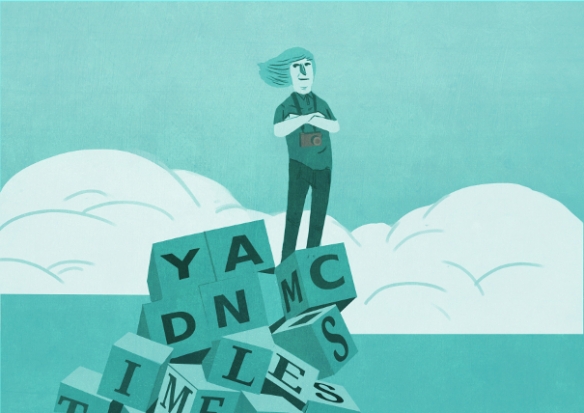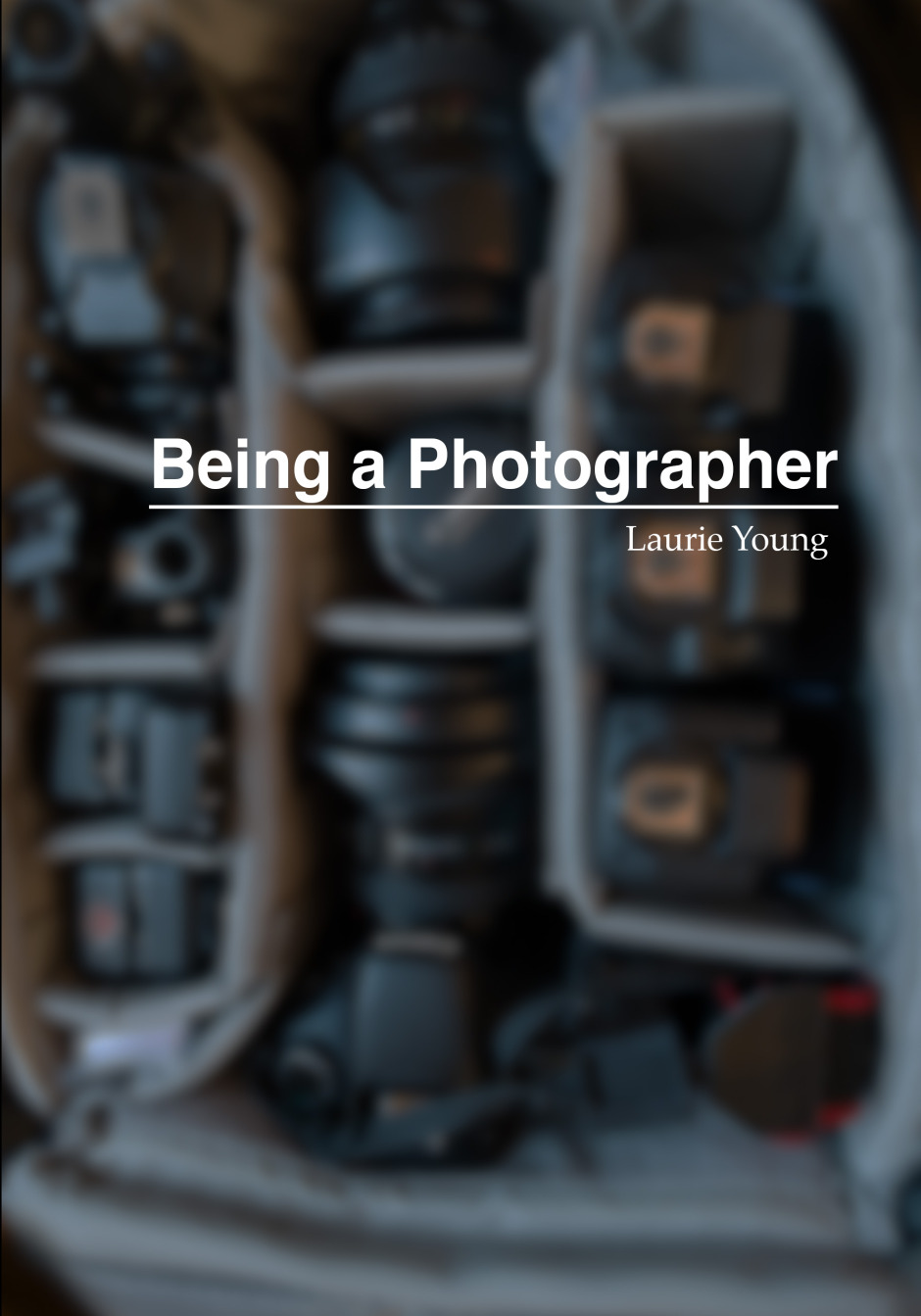
Earlier this week I had the terrible misfortune to follow a link on Twitter that took me through to a photography-oriented q&a column. Someone posed a question and the readers chimed in with answers in the comments section. Of course, a q&a column in and of itself isn't a gruesome thing, and in fact neither was the question. A young photographer was querying the importance of a biography and an artist's statement; she'd never written one before, she didn't know exactly how significant they were, and because she didn't really write she wasn't sure how to approach it. That's pretty straightforward, but Eurynome on a unicycle, the answers left me gagging.
The adage that you should never read the bottom half of the Intergoogles held good here–and given that the article was entirely incomplete without the bottom half, was somewhat unfortunate–because it would seem that there's a shutter of photographers out there who take themselves far too seriously. No, that doesn't mean that you shouldn't take a bio or an artist's statement seriously; they're how your audience or your potential clients connect to you as an individual. What it means is that they need to be honest, approachable, and a reflection of who you are.
Your biography shouldn't be so vomit-inducing or cringe-worthy that people can't make it past the first sentence, or so esoteric or unbelievable that people have no idea what you're going on about or think that you're off your rocker. You're a photographer, you take photos; it is highly unlikely that you're capable of changing the world through the medium of your art. If you truly are one those handful of photographers who is able to influence the way that the global community sees the world, the chances are you don't have time to write about it in your bio. And what the hell are are doing reading this?
After I'd restrained the urge to scratch out my eyeballs as a result of the sheer vulgarity of what I'd read, I showed it to Gareth. Thankfully, he had a slightly different reaction: he fell about laughing. When he'd regained his composure (it took a while) he came up with some far superior advice for the young photographer struggling to construct her biography. Here, then, speaks the voice of experience.
Gareth Dutton (Bsc, MA, Ph.D, RGB, ABS, NBA, NBC, HBO, ROFL, LMAO, OMGWTFBBQ) is a hyper-dynamic, dangerously powerful photo-leopard and the proud owner of the title Impossibly Powerful Light Lord of the Entire Photoverse, which is a prestigious title given only to those who undertake a seven day course where you are assigned to photograph a graveyard to learn about black and white conversion: a course run by the prestigious Dr. FraudGob McUntrustworthy-Smyth.
Gareth doesn't just create photographs, though; he visually transcribes the art waves that he detects and accumulates in his emotional core to create powerful, tear-inducing art-tographs. The “Dutton Experience” is one that his clients talk about long after they leave the studio, when returning to their imaginary homes, whilst wearing their imaginary clothes that cover their imaginary bodies.
Seriously, you expect anyone to believe that hurtling ball of imaginary nonsense? Does it say anything at all about the photographer? Does it distinguish his work from any other photographer's? And this is where far too many photographers get it wrong: it's the difference between a bio written by a photographer and bio written by a salesperson.
For a long time, I had no bio on my website, because I just couldn't think of something that didn't sound awful. I had a go at one, looked at it a week later and cringed so hard I burst the blood vessels in my forehead and inadvertently pierced both my ears with my shoulder blades. A few rewrites later and I felt much better, massive haemorrhaging notwithstanding. So why is it so hard to write a bio? The problem lies in avoiding the buzzword trap.
Think about it; how many times have you read these lines?
- 'I love to capture a moment in time before it is lost forever.' That translates as 'I love to take photos.'
- 'Gareth's timeless images push the boundaries / are at the cutting edge of photography / display his completely innovative style'. Really? Unless you really are that influential, writing this makes you look silly.
- 'Clients come away knowing that they've experienced a Gareth Dutton shoot.' Oh please! Nobody is going to walk away from a photoshoot going 'I really feel like I've just experienced a Gareth Dutton shoot.' Admittedly, this does sometimes happen with me, but that feeling they have is a sense of terrible unease and creeping dread.
Essentially, you want to avoid making your bio sound like a press release: a procession of vague half-lies, presented in the form of sterilised, buzzword-heavy non-sentences. As a result, I was wracking my brain, wondering what I could write about myself that wasn't clichéd and embarrassing. Eventually, I realised I should probably just be honest and show a little personality. I just wrote about what I do, the type of photography I undertake and added the tiniest sprinkling of humour, or 'humour', depending on your standpoint.
It's a bit like taking a self-portrait: you can set up some studio lights, get your face all chiaroscuro'd up, look moody and interesting and then clone out all those blackheads in Photoshop, but is it a portrait of you anymore? Step away from the word processor, forget about writing a bio, and just say something out loud about yourself, to yourself. Don't worry, no one else can hear you, so you don't sound like a prize prat.
Now write it down.
Tiresome ramblings aside, the important thing is to write honestly. Why do you take photographs? What do you like about photography (apart from 'capturing a moment forever')? Anyone you admire specifically? Is there an area of photography you specialise in, or undertake more frequently than others? What are your hobbies? What gets you going creatively, emotionally, aside from photography? These are all good starting points for a more interesting, more personalised bio.
In my opinion, the golden rule is to read a sentence out loud and then imagine yourself saying it to another human being in a bar. If this imaginary scene ends with the human being in question quietly downing their drink, placing the glass down on the bar and saying 'Excuse me, but I need to go and talk to... well, someone who isn't you,' then it's probably a sentence you should edit or remove.
It's that time again, my elegant photo-beasts and beastettes – homework time. Your homework is to have a look at your bio and remove anything that sounds like it belongs in an intro for the Managing Director of a Global Logistics Solutions company (whatever one of those is) and rewrite it.
Then, when you've rewritten your bio so that you don't sound as if you've been processed by a Z-list celebrity agent, we've a treat for you: Bio Buzzword Bingo! You can download your very own word search and seek out the collection of marketing-tastic words that really shouldn't be anywhere else than hidden away in a grid of otherwise incomprehensible letters.

Now if you'll excuse me, I'm off to find out whether 'synergy' can still be used in a sentence or if it's been ruined forever.
The gorgeous illustration, by the way, was drawn by the highly talented James Park of Sweetmeats Illustration.








